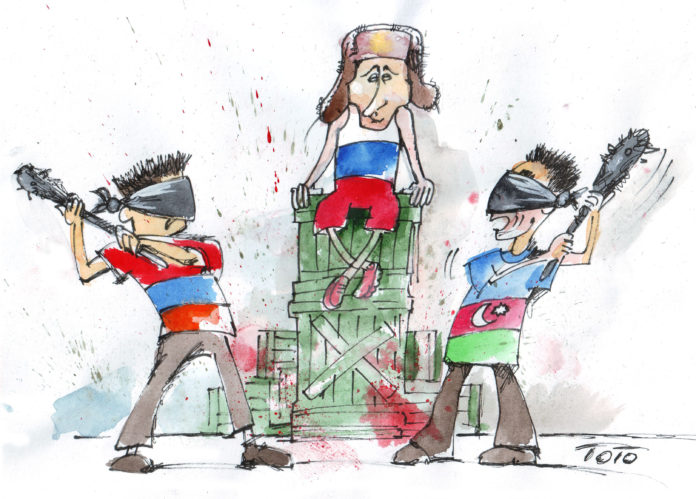By Edmond Y. Azadian
As Armenia’s Parliament continues to strip the newly-created office of the president of any and all meaningful powers and as the media and the opposition forces continue to debate when Armen Sarkissian gave up his British citizenship, one is reminded of the fall of Constantinople in 1453 to the Ottoman forces of Turkish Sultan Mohamed II. According to legend, the capital fell while the Byzantine Court was debating a very crucial topic: how many angels could stand on the point of a pin.
While the story might serve as a very effective metaphor, it sounds as if it is an apocryphal one, because that analogy is more relevant to 17th-century theology and also, because Byzantine Emperor Constantine and his courtiers were in a struggle to save their lives, as the Turks had given enough warnings by bombarding the city for a long time. To this day, there is scant evidence about the fate of the emperor; some believe he was killed during fighting while other witnesses vouch for his suicide.
Continuing with the deviation from our own topic, it is interesting to remember how the Ottoman army succeeded in breaking the defenses of the city. A Hungarian engineer called Urban or Orban, perhaps one of the ancestors of Hungary’s current Prime Minister Victor Orban, who delivered Azeri murderer Ramil Safarov into the loving arms of Azeri President Ilham Aliyev to a hero’s welcome in Baku, had designed a new and powerful cannon and had offered it to the Byzantine ruler, who refused to buy it because of a lack of funding. Engineer Orban then sold his invention to the Ottoman army, where it played a fateful part in its victory.
Returning to our metaphor, while Armenia is furtively engaged in minutiae, the world around it is becoming more ominous. A rapid succession of events does not favor the country at the moment.
The Russian-Turkish rapprochement is at Armenia’s expense inter alia. It has global ramifications. Turkey, as a major power, can play a balancing act. Its membership in NATO is a valuable asset for the West, which cannot afford to sever its ties no matter how strained they may become. And using that situation as a point of leverage, Turkey can move towards the West’s adversaries, namely Russia and Iran, with impunity.









